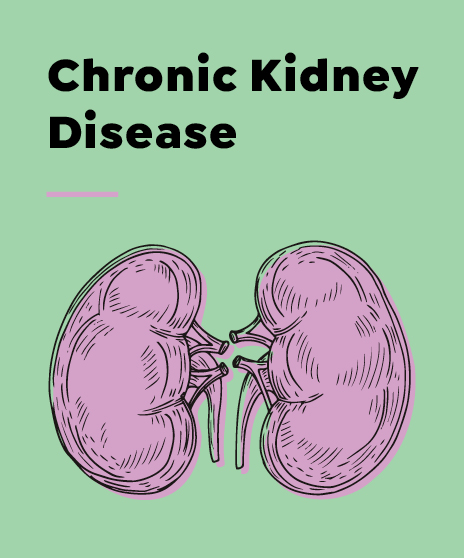These three words sound frightening. What is Chronic Kidney Disease (CKD)? Why is CKD so important?
The kidneys main job is to filter and remove waste products from the bloodstream and send the waste to the bladder for removal with urination. As we age, the kidneys ability to perform this removal process lessens slowly. When waste products are not removed quick enough, it backs up the system. Overtime, this system backup causes damage to the kidneys, hence CKD.
Flashback to 2005 when dialysis clinics saw a sudden increase of patients in kidney failure. Improved blood testing was desperately needed to detect early kidney decline, which would lessen the dialysis burden.
With the advancement of medical technology, clinicians are now able to follow kidney function much easier. Monitoring kidney blood levels has continued to evolve into three simple result values:
- BUN – blood urea nitrogen. A protein waste product that is formed by the liver after eating. The kidneys keep some nitrogen in the blood and sends the extra to bladder for removal with urination.
- Creatinine – A waste product made by normal muscle break down. The kidneys do not keep creatinine in the blood and sends it to the bladder for removal with urination.
- EGFR – estimated glomerular filtration rate. A numerical value determined by a calculation of age, race, gender, and creatinine level.
Once the EGFR value is known, it can be categorized into stages. A treatment plan can be formulated if the EGFR falls into certain stage.
Stage 1: 90 and higher (this is the best stage).
Stage 2: 60 – 89
Stage 3a: 45 – 59
Stage 3b: 30 – 44
Stage 4: 15 – 29
Stage 5: 14 and lower (this is the worst stage).
How can you help your kidneys? Avoiding excessive dark soda consumption. Dark soda contains phosphorus which can be harmful to the kidneys. A high protein diet can make the kidneys work harder. Certain medications are also filtered by the kidneys. Once the EGFR and creatinine levels start changing, these medications need to have the dose reduced or be stopped. The most common medications in this category are NSAIDS or anti-inflammatory drugs like ibuprofen or naproxen. It is important to regularly review all the medication you take- both prescription and over the counter, with your provider.
But have no fear, help is here. Drinking water to maintain hydration is the easiest way to assist the kidney in cleaning the blood and preserving normal kidney function. Eat healthy well-rounded meals. Get blood work every 6 – 12 months to monitor the EGFR level. Make sure your blood pressure and diabetes are well controlled and stop smoking cigarettes. Your kidneys will thank you.

